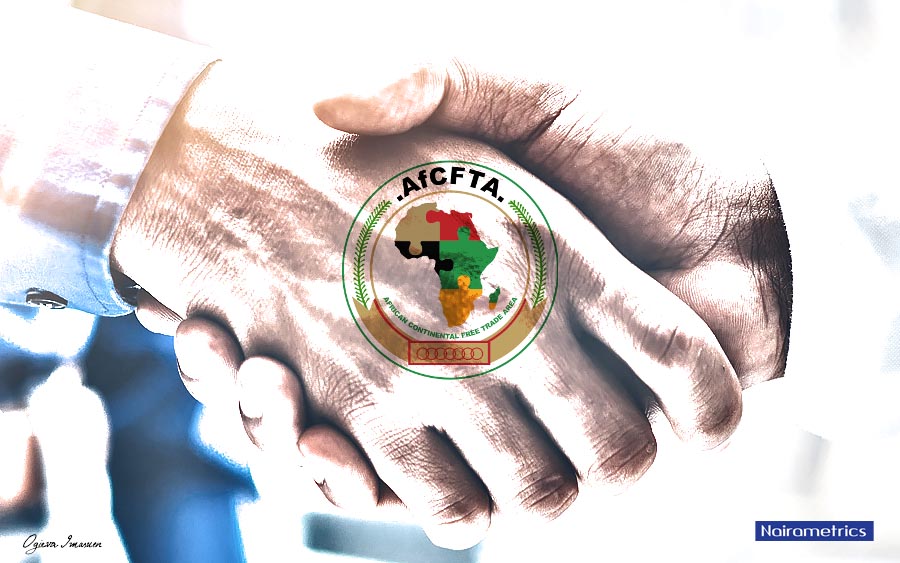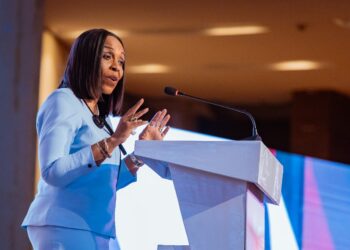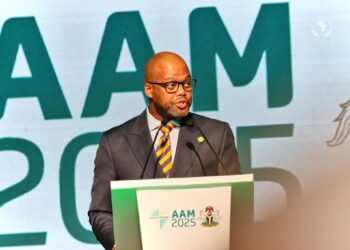With the start of trading under the African Continental Free Trade Area (AfCFTA), it is expected that more countries will join the list of member-states that have ratified the trade agreement. Indeed, no country would want to play a second fiddle to what has been termed the next economic frontier and a game-changer on the continent.
Recall how Ghana beat other countries to be selected as the seat of the AfCFTA Secretariat. Though there are other factors considered in selecting Ghana over other bidders such as Kenya, Egypt, Ethiopia, Senegal and Madagascar, one significant point that cannot be disputed is the country’s early interest in the trade deal. Being one of the first countries to ratify the agreement on 18 May 2018 (also the first sub-Saharan African country to gain independence in 1957), Ghana enjoyed that early-bird advantage over other latecomers. Nigeria, it will be noted only recently ratified the Agreement on 5th December 2020 after initial dilly-dallying.
Given whatever may appear to be a lull that has followed the start of trading, the significance of more countries ratifying the trade agreement cannot be over-emphasized. For one, it will heighten the interest of member countries and create more awareness of the importance of the free trade deal. Only the countries that have ratified the AfCFTA agreement are considered State parties – see Article 1 of the Treaty. Thus, signing alone is not enough.
Secondly, given that only State parties are entitled to the benefits inherent under the free trade area such as trade liberalization and access to the larger market, countries that have signed the agreement would want to take further steps to ratify it. This will amongst other things speed up the process of implementation particularly in relation to tariff concessions and rules of origin. In my previous column, I had noted that the rules of origin provide the foundation and building block for the trade liberalization, value addition and industrialization of the continent.
Countries that have ratified the AfCFTA Agreement – What this means
As at July 2021, 40 out of 54 signatory countries have ratified the AfCFTA treaty, with the latest addition being Zambia, Malawi, Algeria and Burundi. Ratification is significant because it confers on a ratifying nation a full status of State party. More importantly, the fact that the top 4 economic powers and richest countries on the continent which are Nigeria, South Africa, Egypt, Algeria have ratified the trade agreement is indeed a big boost. As the list of non-ratifying countries continues to shrink, the hope that the implementation process will gain momentum is rising.
So far, 42 countries have submitted their offers for schedules of tariff concession representing 76% of AU membership. 28 Offers have been certified, having met the 90% of the tariff lines – these offers came from Democratic Republic of Congo, Egypt, Madagascar, Malawi, Mauritius, Seychelles, Zambia, Gabon, Cameroon, Central African Republic (CAR), Chad, Congo, Equatorial Guinea, Benin, Burkina Faso, Cape Verde, Cote d’Ivoire, The Gambia, Ghana, Guinea Bissau, Liberia, Mali, Niger, Nigeria, Senegal, Sierra Leone and Togo. The percentage of agreed rules of origin has equally increased from 81% to 86. All these are signs of progress and the gradual attainment of the objectives of a liberalized market.
After ratification, what next?
There has been a raging argument over the issue of domestication of the AfCFTA Agreement. In Nigeria for instance, some experts are of the opinion that failure to domesticate the agreement may affect its validity and implementation within the country. Reference is often made to section 12(1) of the 1999 Constitution of Nigeria (as amended) which provides that “No treaty between the Federation and any other country shall have the force of law except to the extent to which such treaty has been enacted into law by the National Assembly. the domestication of treaty to make it binding.”
However, other international trade law experts have taken a different view, insisting that ratification of the AfCFTA Agreement is not necessary because of the peculiarity of multilateral free trade agreement which is different from other international conventions. An example has been cited of the World Trade Organization Agreements which are not domesticated in Nigeria even though the country is a member of the WTO. The situation is not any different in most African countries that have ratified the AfCFTA particularly those with similar legal systems as Nigeria.
Speaking recently at an event, the Director-General of the Nigerian Office for Trade Negotiations noted that those calling for the domestication of the agreement at this stage are jumping the gun as no country can domestic an agreement that is still undergoing negotiations. Indeed, the protocols that will form the integral components of the trade agreement are still being negotiated. Just recently, there was a report about additional Protocol on Women and Youth in Trade that is being developed. Though the comment from the Director-General may have calmed some frayed nerves, it did not address the question of whether the domestication of the AfCFTA is required or not.
Whilst I agree with the position of the Director-General that the focus should be on the conclusion of the ongoing negotiation of the protocols which will give life to the free trade agreement, it is also important that the Federal Government through its chief legal officer clarifies the position of the government on the domestication issue at some point. While we wait for that to happen, efforts should be geared towards fine-tuning the outstanding protocols in order to pave way for the full implementation of the agreement. In the same vein, other African countries that have signed but are yet to ratify the treaty are encouraged to do so.

















